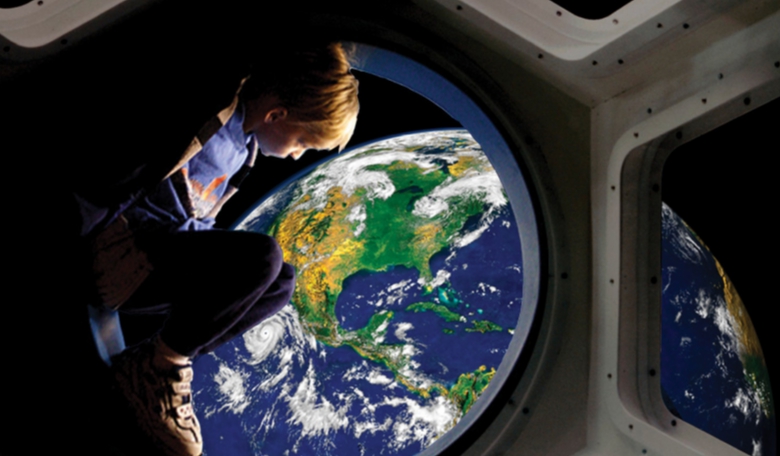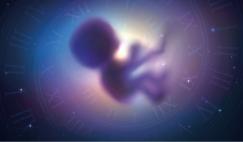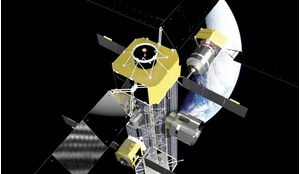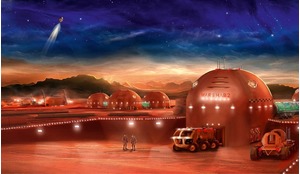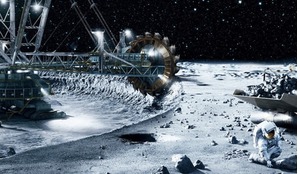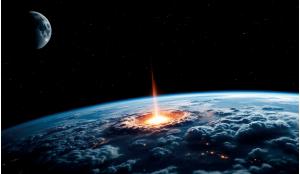On Christmas Eve 1968, a turbulent world looked to the heavens for a unique view of our home planet. Apollo 8 astronauts Frank Borman, Jim Lovell and William Anders had become the first humans ever to leave Earth’s orbit. That evening during a historic, live television broadcast, the world watched as those men took what may well be the single most influential photograph of all time - Earth rising above the stark landscape of the Moon.
Through their eyes, the rest of us saw Earth like we’ve never seen her before. That pivotal moment was the first time all of us saw our fragile home planet rotating alone in the vast blackness of space. Jim Lovell said, “The vast loneliness is awe-inspiring and it makes you realise just what you have back there on Earth.”
![]() NASA’s high resolution ‘Earthris’ image recreates the most iconic Earthrise photo taken by the crew of the Apollo 8 mission as the spacecraft entered lunar orbit on Christmas Eve1968.
NASA’s high resolution ‘Earthris’ image recreates the most iconic Earthrise photo taken by the crew of the Apollo 8 mission as the spacecraft entered lunar orbit on Christmas Eve1968.
Nothing compares to the actual experience of being in outer space. Apollo 17 astronaut Harrison ‘Jack’ Schmitt’s biggest regret is that he couldn’t have stayed longer on the Moon. “Another day would have been nice,” he said. “It’s a fascinating place… but it’s the sort of experience that’s not readily transferable. It’s like trying to describe what you feel when you’re standing on the rim of the Grand Canyon or remembering your first love, or the birth of your child. You have to be there to really know what it’s like. Being there is an essential ingredient of the human experience.”
Many of us from all walks of life want to experience space travel. We have dreamed of these journeys while enjoying space-themed movies, TV programmes and books. Space travel is compelling, whether it’s the desire to have a life-changing view of Earth from orbit or to float weightless in space as in our flying dreams.
Advances in private space travel, once the domain of a privileged few, are about to make it possible for everyday people to have the profound experience of spaceflight. Armchair astronauts can finally live the dream onboard passenger spacecraft built by Virgin Airlines founder Richard Branson and Burt Rutan, the designer of history-making SpaceShipOne. Virgin Galactic’s passenger spacecraft can carry six people to the edge of space where they float weightless and view the Earth below.
Advances in private space travel are about to make it possible for everyday people to have the profound experience of spaceflight
If you are alive today, you have a very real opportunity of travelling to space before you die. But whether you personally fly to space or not, private space travel will have a tremendous effect on all our lives. We are entering a new Space Age. We are all participants in the dawning of a space-traveller society here on Earth.
If someone had told your great, great grandfather back in 1904 - when the Wright Brothers took their short but historic flight - that within a decade a passenger airline service would be operating in America, he probably would have laughed - along with the rest of the world. Now, thanks to the Wright Brothers and others, the everyday person will be able to take an afternoon suborbital flight to the edge of space, or go all the way to orbit and circle the entire planet every ninety minutes while floating weightless.
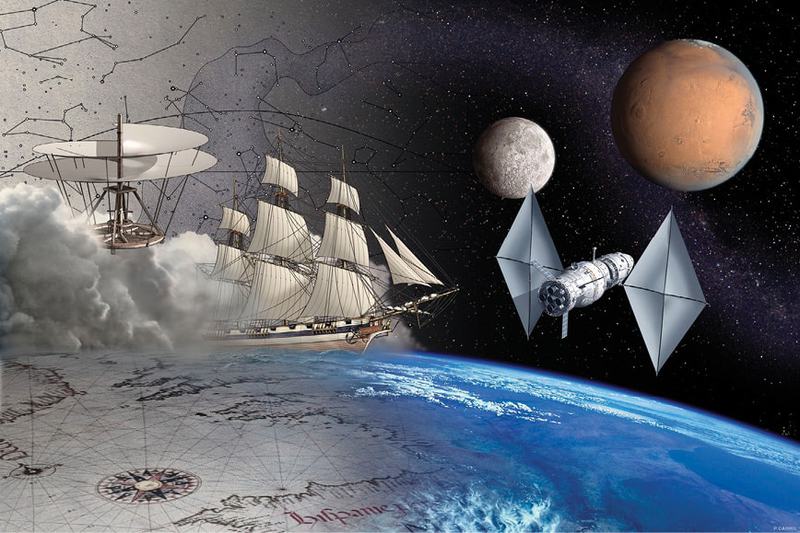 From the dawn of humankind the need to explore has driven expansion across our planet. Today this expansion continues towards other planets in the Solar System.
From the dawn of humankind the need to explore has driven expansion across our planet. Today this expansion continues towards other planets in the Solar System.
On 21 June 2004, headlines around the world read ‘SpaceShipOne makes history: first private manned mission to space’. On this historic day, everyone witnessed the dawn of a new space age as investor and philanthropist Paul G. Allen and Burt Rutan’s Scaled Composites launched the first privately manned vehicle beyond Earth’s atmosphere on a test flight. The successful launch of SpaceShipOne demonstrated that the final frontier is now opening to private enterprise. We are participants in a brand-new civilization - the space traveller society.
Other prominent millionaires investing some of their fortunes in private space travel include Jeff Bezos, founder of Amazon.com, who is developing a spacecraft that flies like those envisioned in early science fiction novels. Robert Bigelow, founder of the Budget Suites hotel chain, is test-flying inflatable cabin modules for a future space hotel.
Polls show that over half of us would like to travel in space. The list includes celebrities such as actor Tom Hanks, movie director James Cameron and renowned physics professor Stephen Hawking; as well as everyone from high school teachers to starry-eyed children, to me and maybe you too.
People will find different reasons to travel into space. To feel weightless, even for a moment, is why kids play on a swing and bounce on a trampoline while grinning from ear to ear. The thrill of weightlessness is why we ride roller coasters, skydive or scuba dive. There is even a moment of weightlessness in every jump for joy and in between every step we take.
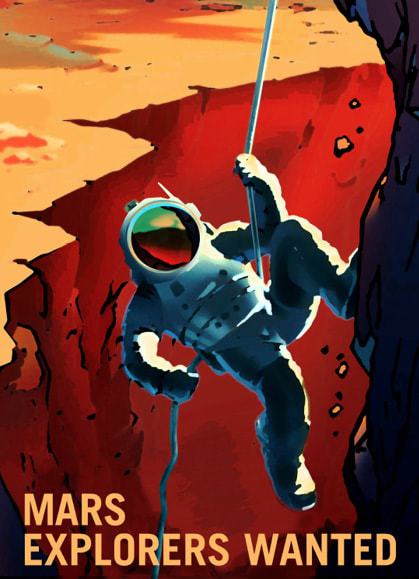 NASA’s ‘Explorers wanted on the journey to Mars’ poster, which encourages a different view of exploration. See ‘Space for art’, page 93.
NASA’s ‘Explorers wanted on the journey to Mars’ poster, which encourages a different view of exploration. See ‘Space for art’, page 93.
Apart from the thrill of weightlessness, some may go as a release from physical discomfort. Weightlessness may also enhance the end of life. As more of us live to be 100 years old or greater, the side effects of aging such as back pain, arthritis and heart disease may be eased in the microgravity environment.
Being there is an essential ingredient of the human experience
As futurist Arthur C. Clarke once speculated regarding human travels in space, “Weightlessness will bring new forms of erotica. About time, too.” Surely, space travellers, especially those on their honeymoon, will be inspired to make love in microgravity. Sex in space has remained a relatively unexplored area - or should we say undocumented? As for who had the first sex in space, all we know is that Mark C. Lee and N. Jan Davis were the first married couple in space in 1992. Some experts believe the co-ed cosmonauts on Mir may claim the title to ‘first sex in space’ as well.
Some will go to see their home planet from space like the crew of Apollo 8. The view of Earth from the window is probably the most dramatic aspect of space travel. Astronauts say the emotional effect of the view is even greater than the experience of weightlessness. On Earth, space is something we see above our heads at night. From our spacecraft, we are in the scene and not merely watching it anymore. The reality of space travel could be overwhelming. Earth out the window is never removed from immediate consciousness.
The responses from people who have flown in space, and who have seen the Earth from space, substantiate one basic premise: the act of travelling in space can create profound changes in a person’s life, causing (or allowing) them to see the world in new and extraordinary ways.
The benefits from exploring space touch our lives every day. Space travel has given us everything from the inspiration of watching humans first set foot on the Moon to the life-enhancing technologies in our hospitals and homes. Where would we be without orbiting satellites that transmit our phone calls to loved ones, guide the airplanes we fly and warn us of killer hurricanes before they strike?
You and I are in part responsible for the continuation of life from Earth. Long before the Sun meets its death, before our planet becomes a cold, lifeless cinder block in space, taking human life elsewhere in our Solar System will tip the scale from extinction to evolution. Apart from its extraordinary potential as a blossoming commercial enterprise, there may be some good existential reasons why commercial space, in particular space tourism, may be an important link in humanity’s long-term survival.
An immediate benefit of increasing the human presence in space may be the sense of adventure it would give the people of the world. Millions of kids might be inspired to pursue science and improve life on Earth as doctors, engineers and inventors. Today’s students don’t view living and working in space or on Mars as science fiction, they see it as the future.
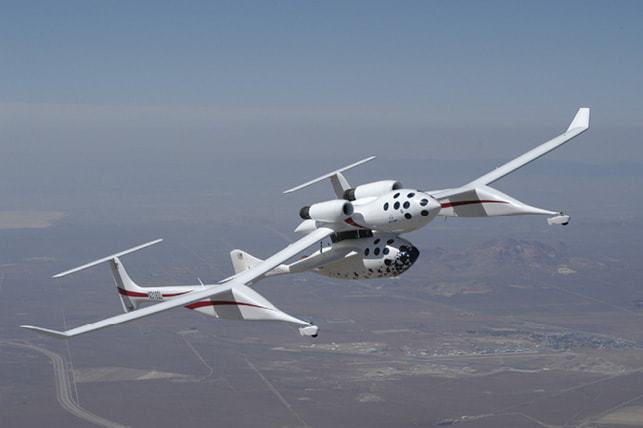
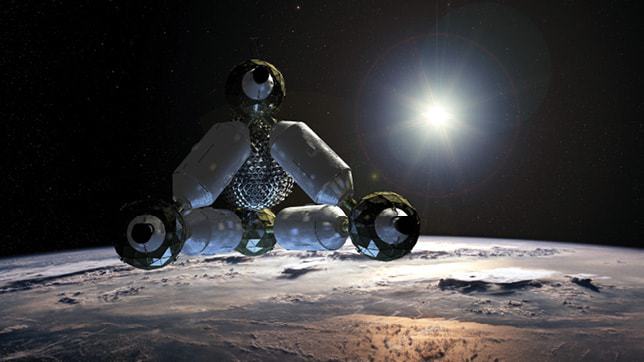 SpaceShipOne nestled safely beneath her mothership, the White Knight and (below) the rear view of the CosmicSea spacecraft departing Earth on a hypothetical journey to Mars, from the author’s book The Everyday Space Traveler with a foreword by Buzz Aldrin.
SpaceShipOne nestled safely beneath her mothership, the White Knight and (below) the rear view of the CosmicSea spacecraft departing Earth on a hypothetical journey to Mars, from the author’s book The Everyday Space Traveler with a foreword by Buzz Aldrin.
We also know that travelling into space is riddled with question marks. Our understanding of how the human organism responds to the stresses the microgravity environment places upon it grow almost daily, but experiments carried out to date have all been on astronauts in peak physical condition (at least at the beginning of the mission). The more everyday people experience the space environment, the vaster our database about the range of the human reaction, and the better armed we are to tackle the mission of making humanity a multi-planet species.
Before the new century fades away on 31 December 2099, humans will likely have tasted the air and frozen waters on Mars, peered even deeper into black holes, and perhaps heard signals from civilizations on planets in nearby star systems. Someday when we look up at the stars, looking back could be the faces of our children - the continuation of humankind.





